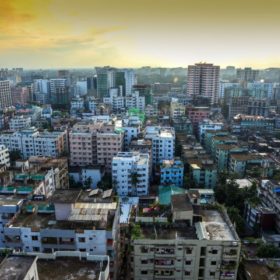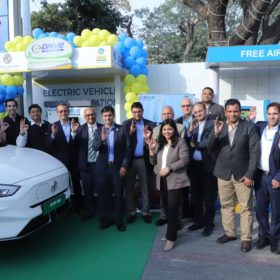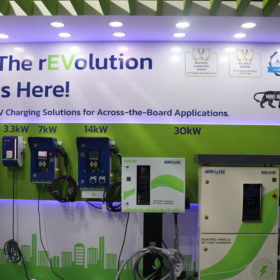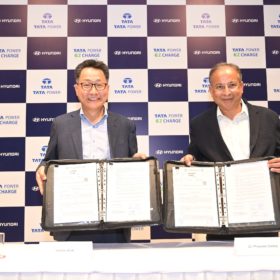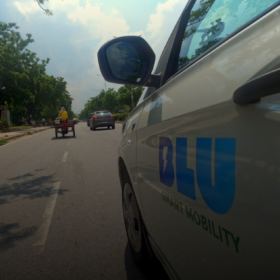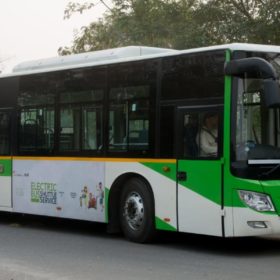Faster electric car rollout in Bangladesh demands policy support
The economic burden of air pollution in Bangladesh, for which transport is one of the major reasons, calls for strong policy-level intervention to increase the adoption of electric cars.
BPCL launches 12 fast EV chargers on Delhi-Jalandhar highway
The DC fast electric vehicle (EV) chargers will be available at BPCL fuel stations between Delhi and Jalandhar. BPCL plans 200 such fast-charging corridors along national highways by March this year.
Servotech hits 1,400 EV charger supply milestone in three months
Servotech Power Systems has supplied 1,400 EV chargers in a span of three months in various cities across India.
India may fall behind its 2030 EV sales forecast
A new report says India will have only 50 million electric vehicles (EVs) on road by 2030 despite a ramp-up in domestic manufacturing, falling behind by 40% on the cumulative sales projections by NITI Aayog. It also recommends policy measures to improve India’s chances of realizing 80 million EV sales by 2030.
Tata Power to install EV charging infrastructure at Hyundai dealerships
Tata Power has signed an agreement to commission home chargers for EV owners and install its EZ Charge fast chargers (DC 60 kW) at Hyundai Motor India’s 34 electric vehicle dealer locations in 29 cities.
Electric mobility sector’s budget wishlist
Players in the electric mobility sector call for a reduction in goods and services tax on electric vehicle (EV) batteries, easy access to low-cost finance for EV buyers, and expansion of FAME Scheme subsidy to ICE-to-EV conversion kits. They also expect the government to enhance the manufacturing capacity and financial layout under the production-linked incentive (PLI) scheme for advanced-chemistry battery cells.
Green mobility: IREDA launches scheme to finance battery storage, green hydrogen and fuel cell technologies
The State-controlled renewable energy and energy efficiency lender has launched a scheme to finance new and emerging technologies that promote and increase the usage of renewable energy in the transport sector.
Hyderabad startup plans EV chargers at 4,000+ locations by 2025
SmartChargEV plans to set up electric vehicle charging facilities at 4,000+ locations in all the States and union territories of India by 2025, and 23,000+ locations by 2031.
New solar-powered EV charging station opened at Delhi-Chandigarh highway
The solar-powered EV charging station at Karna Lake Resort, Karnal, is one of the 20 such stations set up by Bharat Heavy Electricals Limited (BHEL) along the Delhi-Chandigarh highway. It is equipped with AC001 (3×3.3kW), DC001 (15kW), and 72kW (50kW DC+22kW AC) chargers to charge all types of electric cars plying currently in the country.
EverSource-backed GreenCell to deploy 3,250 electric buses in three years
The company will initially launch 750 electric buses across key intercity and inter-state transit routes in Southern and Western India. To support the e-bus rollout, it is also building a captive charging infrastructure network across highways with 600 DC chargers of 180/240 kW capacity rating.
